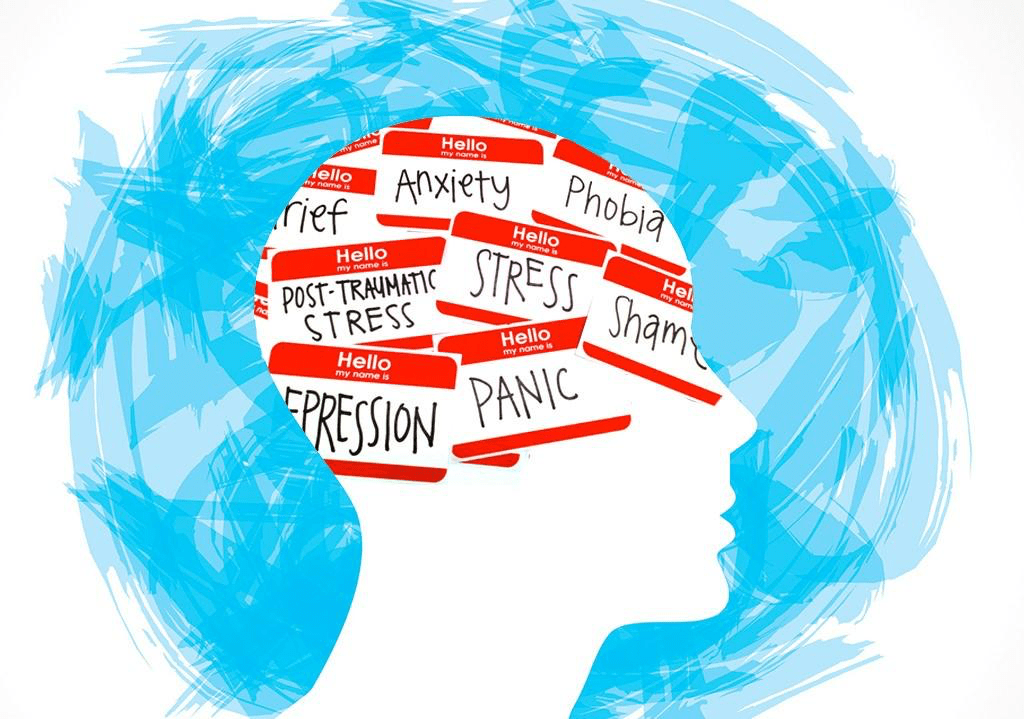Contents
- 1 What Is Mental Health Disorder?
- 2 Types of Mental Health Disorder
- 3 Symptoms of Mental Health Disorders
- 4 What Causes Mental Health Disorders?
- 5 Diagnosis of Mental Health Disorders
- 6 Mental Health Disorders Treatment
- 6.1 Psychotherapy or counseling.
- 6.2 Prescription medicine
- 6.3 Support groups
- 6.4 Creative Therapies
- 6.5 ECT or Brain Stimulation Therapy
- 6.6 Eye Movement Desensitization and Reprocessing (EMDR) therapy.
- 6.7 Hospital or Residential Treatment Program.
- 6.8 Case Management
- 6.9 Hospitalization
- 6.10 Self Help Plan
- 7 Types of Therapy For Mental Health Disorders
- 8 Conclusion
- 9 A Word From Therapy Mantra
What Is Mental Health Disorder?
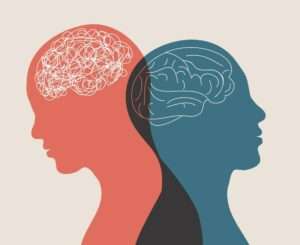
Mental health disorders is a term that refers to a broad range of mental health conditions. These are conditions that affect a person’s mood, thinking, and behavior. This can be the result of factors, such as genetics, environment, or lifestyle. There are many different types of mental health disorders, and they can vary in severity from mild to severe. There are many symptoms and treatments of some of the most common mental health disorders.
Types of Mental Health Disorder
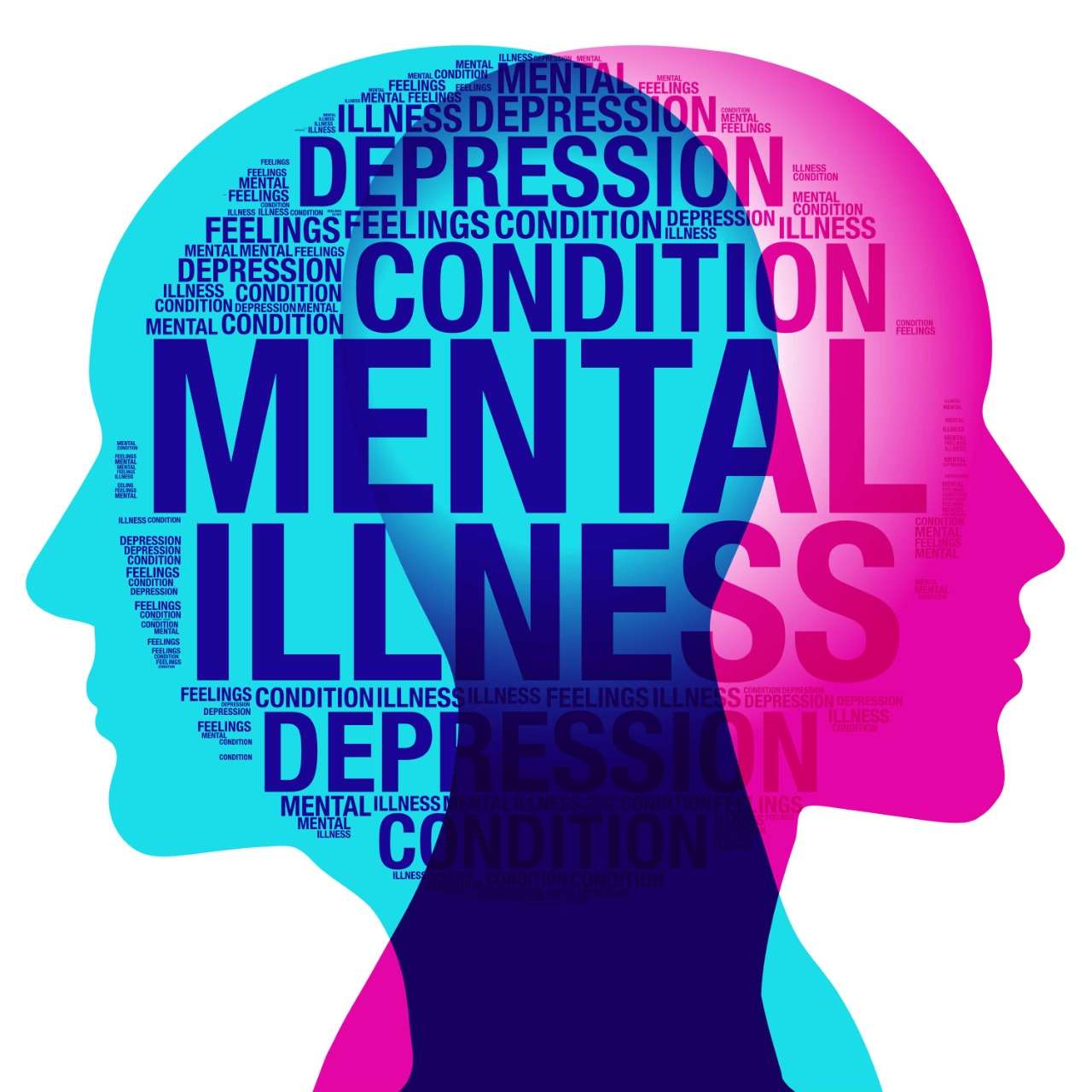
There are many types of mental health disorders. Some of these are:
Panic Disorder And Social Phobia
Panic disorder is a type of anxiety disorder that causes panic attacks. These are episodes of intense fear or terror that reach a peak within minutes and cause serious physical symptoms, such as heart palpitations, shortness of breath, dizziness, or feelings of unreality.
Depression or Bipolar Disorder
Depression is a mood disorder that causes feelings of sadness, emptiness, and worthlessness that can persist for weeks or months at a time. Furthermore. bipolar disorder is a type of mood disorder that causes extreme mood changes, from mania (a state of high energy and happiness) to depression.
Anorexia Nervosa And Bulimia nervosa
Anorexia nervosa is an eating disorder characterized by a refusal to maintain a healthy weight, an intense fear of gaining weight, and a distorted body image. Bulimia nervosa is another type of eating disorder that involves bingeing (eating large amounts of food in a short period) and purging (getting rid of the food by not eating for an extended period).
Obsessive-Compulsive Disorder (OCD)
Obsessive-compulsive disorder is a type of anxiety disorder that causes people to have unwanted and intrusive thoughts (obsessions), as well as repetitive behaviors or mental rituals (compulsions) that they feel compelled to do to relieve their anxiety.
Schizophrenia
Schizophrenia is a chronic, severe, and disabling brain disorder that causes a person to lose touch with reality. Furthermore, it may cause hallucinations (hearing, seeing, or sensing things that are not there), delusions (false beliefs), disorganized thinking, and problems with emotions and behavior.
Borderline Personality Disorder
A borderline personality disorder is a mental health condition characterized by unstable moods, relationships, and self-image. Furthermore, People with a borderline personality disorder often experience intense emotions and have difficulty regulating their emotions. They may also engage in impulsive or harmful behaviors, such as self-harm or substance abuse.
Posttraumatic Stress Disorder (PTSD)
Posttraumatic stress disorder is a condition that can develop after someone has experienced a traumatic event, such as a car accident, sexual assault, or war. People with PTSD may experience flashbacks, nightmares, and intrusive thoughts about the traumatic event. They may also have mood swings and feel emotionally numb.
Symptoms of Mental Health Disorders
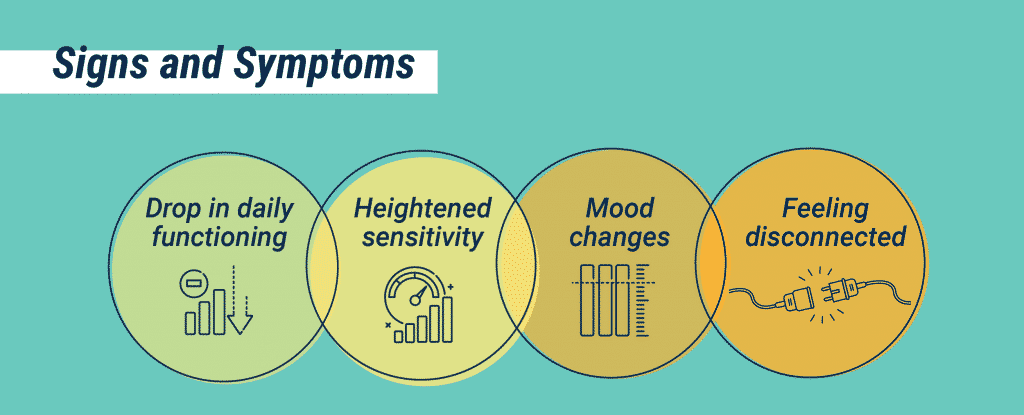
The symptoms of mental health disorders vary depending on the specific condition. Some of these common signs are:
Changes In Mood
Depression is also feelings of low mood, sadness, emptiness, or hopelessness. Mania is the opposite of depression and is marked by abnormally elevated mood, excessive energy, and abnormal thoughts.
Changes In Appetite
People with eating disorders often have an unhealthy relationship with food. Furthermore, they may eat too little or too much, and they may obsess over their weight and body shape.
Difficulty Concentrating And Remembering Things
People with anxiety disorders often have problems concentrating and remembering things. This is because anxiety can make it difficult to focus on anything other than the thing that is causing the anxiety.
Sleep Problems
People with mental health disorders often have trouble sleeping. This can be because of the anxiety or depression itself, or because of the medications used to treat these conditions.
Restlessness, Agitation, Irritability, And Aggression
People with bipolar disorder often experience periods of extreme restlessness, agitation, irritability, and aggression. The other name for these symptoms is mania.
What Causes Mental Health Disorders?
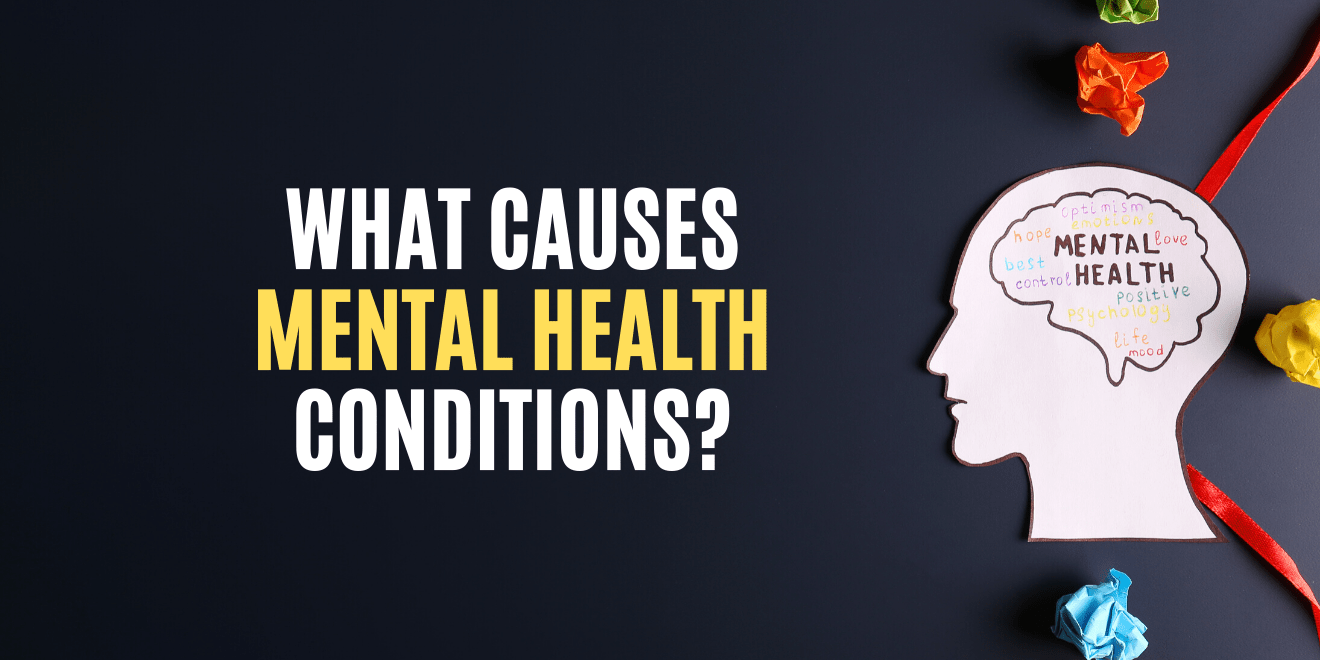
There are many risk factors and triggers, but here are a few examples:
- Genetics. Mental illness often runs in the family. Furthermore, If you have a close relative who has a mental illness, your risk of developing mental health disorder increases.
- Biology. Certain brain chemistry and hormone abnormalities may increase the risk of developing mental illness.
- Environmental factors. Exposure to violence, abuse, or neglect can increase the risk of developing mental health disorders. So can traumatic life events, such as a natural disaster or the death of a loved one.
- Substance abuse. Drug and alcohol abuse can increase the risk of developing mental health disorders. In some cases, substance abuse may also help as a way to self-medicate symptoms of a mental illness.
- Environment. Living in a stressful environment can make you more likely to develop a mental illness. Things like living in poverty or having an abusive family put a lot of stress on your brain and often trigger mental illness.
- Childhood trauma. Even if you’re no longer in a stressful environment, things that happened to you as a child can have an impact later in life.
- Stressful events: like losing a loved one, being in a car accident, or losing a job.
- Negative thoughts. Constantly putting yourself down or expecting the worst can get you stuck in a cycle of depression or anxiety.
- Unhealthy habits: like not getting enough sleep, or not eating.
- Drugs and alcohol: Abusing drugs and alcohol can trigger a mental illness. It can also make it harder to recover from mental illness.
- Brain chemistry. Mental illness involves an imbalance of natural chemicals in your brain and your body.
Diagnosis of Mental Health Disorders
Mental health disorders are often difficult to diagnose because their symptoms overlap with other conditions. There is no one-size-fits-all test for mental illness, so diagnosing it can require a lot of detective work on the part of your doctor.
There are two main ways to diagnose mental health disorders: through a clinical interview and by using a diagnostic manual.
Clinical Interview
A clinical interview is a conversation between you and your doctor in which they ask about your symptoms and any problems you’ve been having. They may also give you some psychological tests to help them make a diagnosis.
Diagnostic Manual
Your doctor will use a diagnostic manual to rule out other conditions that have similar symptoms to the mental health
Mental Health Disorders Treatment
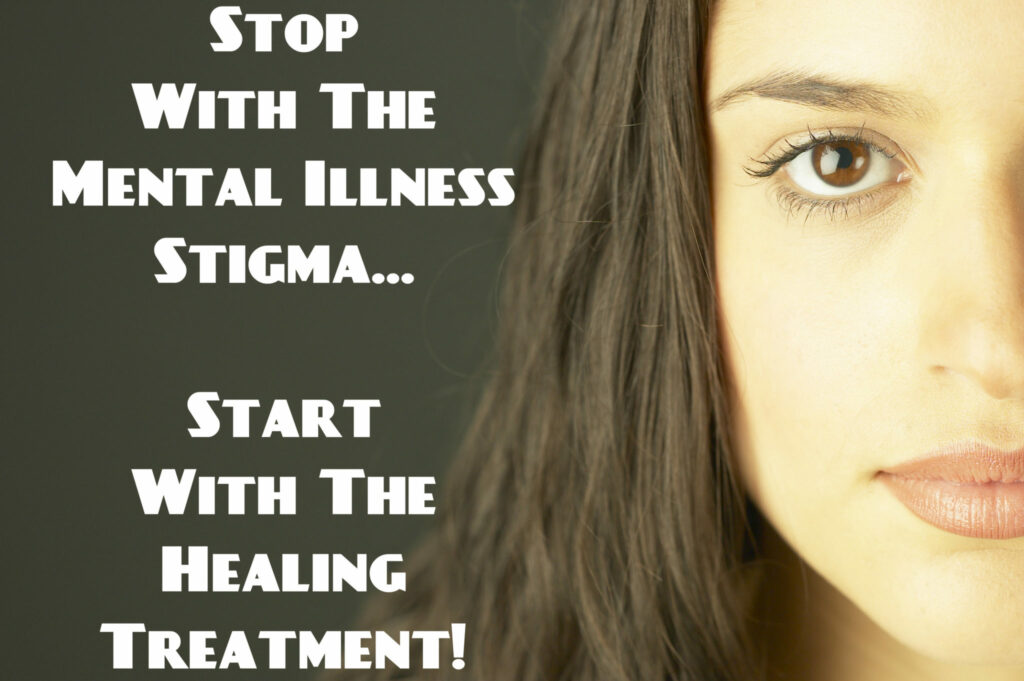
There are several types of treatment for mental health disorders They include:
Psychotherapy or counseling.
This is also known as talking therapy. It entails discussing your issues with a mental health specialist. There are various forms of talk therapy in existence. Cognitive-behavioral therapy and dialectical behavior therapy are two examples of popular kinds of talk treatment. Furthermore, One-on-one talk treatment is frequently used in this instance. It may also be done in group settings.
Prescription medicine
 Another common therapy approach is prescription drugs. Medications for mental disorders alter brain chemicals that are involved in emotions and cognitive processes. Medicines can’t cure psychiatric diseases or physical ailments. However, they may help you feel better. They might make other therapies, such as counseling, more successful. There are a variety of prescription medicines on the market that function
Another common therapy approach is prescription drugs. Medications for mental disorders alter brain chemicals that are involved in emotions and cognitive processes. Medicines can’t cure psychiatric diseases or physical ailments. However, they may help you feel better. They might make other therapies, such as counseling, more successful. There are a variety of prescription medicines on the market that function
Support groups
 Support groups and self-help books can assist you in gaining insight into your illness. They may provide friendships, support, resources, and suggestions on how to manage your illness. They also help alleviate the burden of isolation that accompanies mental health issues.
Support groups and self-help books can assist you in gaining insight into your illness. They may provide friendships, support, resources, and suggestions on how to manage your illness. They also help alleviate the burden of isolation that accompanies mental health issues.
Creative Therapies
There are a variety of treatments utilized to cure mental health issues. Physical activity, such as exercise and yoga, is one example. Creative therapies might also be used. These are techniques that use your creative imagination to solve problems. Furthermore, they may include the usage of art, music, movement, or writing in their implementation.
ECT or Brain Stimulation Therapy
Electroconvulsive therapy (ECT) is a safe treatment that uses electric currents to stimulate the brain. Furthermore, this induces modifications in the brain, which can help to alleviate and even cure debilitating symptoms. When other treatments have failed, ECT and other forms of brain stimulation treatment are frequently utilized.
Eye Movement Desensitization and Reprocessing (EMDR) therapy.
This type of therapy is used to relieve psychological stress. It has become an effective way to help treat trauma, especially post-traumatic stress disorder (PTSD).
Hospital or Residential Treatment Program.
When your mental health problems are severe enough, you may need to go to a hospital or participate in a long-term program. This might occur when you can’t manage yourself. Alternatively, it occurs when you are on the verge of injuring yourself or others.
Case Management
Case management coordinates services for an individual with the help of a case manager. Furthermore, A case manager can help assess, plan, and implement several strategies to facilitate recovery.
Hospitalization
In certain situations, hospitalization may be required so that a patient can be closely observed, correctly diagnosed, or have medication doses changed when his or her mental illness deteriorates.
Self Help Plan
Peer support is a form of assistance that comes from people who have had similar experiences to yours. Furthermore, it is receiving help from individuals who have suffered from similar experiences.
Types of Therapy For Mental Health Disorders
Many types of therapy can help to treat mental health disorders. Some of these are:
Art Therapy
 Art therapy is an integrative mental health and human services profession that enriches the lives of individuals, families, and communities through active art-making, creative process, applied psychological theory, and human experience within a psychotherapeutic relationship.
Art therapy is an integrative mental health and human services profession that enriches the lives of individuals, families, and communities through active art-making, creative process, applied psychological theory, and human experience within a psychotherapeutic relationship.
Music Therapy
Music acts as a medium for processing emotions, trauma, and grief. It can also be a medium for regulating or calming agents for anxiety or dysregulation.
Movement Therapy
Movement therapy like dance helps in stress reduction, disease prevention, and mood management. This therapy is a type of psychotherapy that uses physical movement to improve emotional and mental health.
Occupational Therapy
In the treatment of mental disorders, occupational therapy approaches are an important part of the multidisciplinary team. They help sufferers in their daily activities by helping them develop skills or overcome challenges they face day-to-day.
Conclusion
Mental health disorders have a significant impact on people’s lives, both personal and professional. These disorders are often misunderstood and can be difficult to diagnose. Symptoms of mental health disorders can vary from person to person, and treatment plans should be tailored to the individual. There is no one-size-fits-all approach to treating mental health disorders, but there are many effective therapies available. Furthermore, if you or someone you know is struggling with a mental health disorder, please seek help. There are many resources available, and it is important to get support. You are not alone.
A Word From Therapy Mantra
Your mental health — Your psychological, emotional, and social well-being — has an impact on every aspect of your life. Positive mental health essentially allows you to effectively deal with life’s everyday challenges.
At TherapyMantra, we have a team of therapists who provide affordable online therapy to assist you with issues such as depression, anxiety, stress, workplace Issues, addiction, relationship, OCD, LGBTQ, and PTSD. You can book a free therapy or download our free Android or iOS app.
